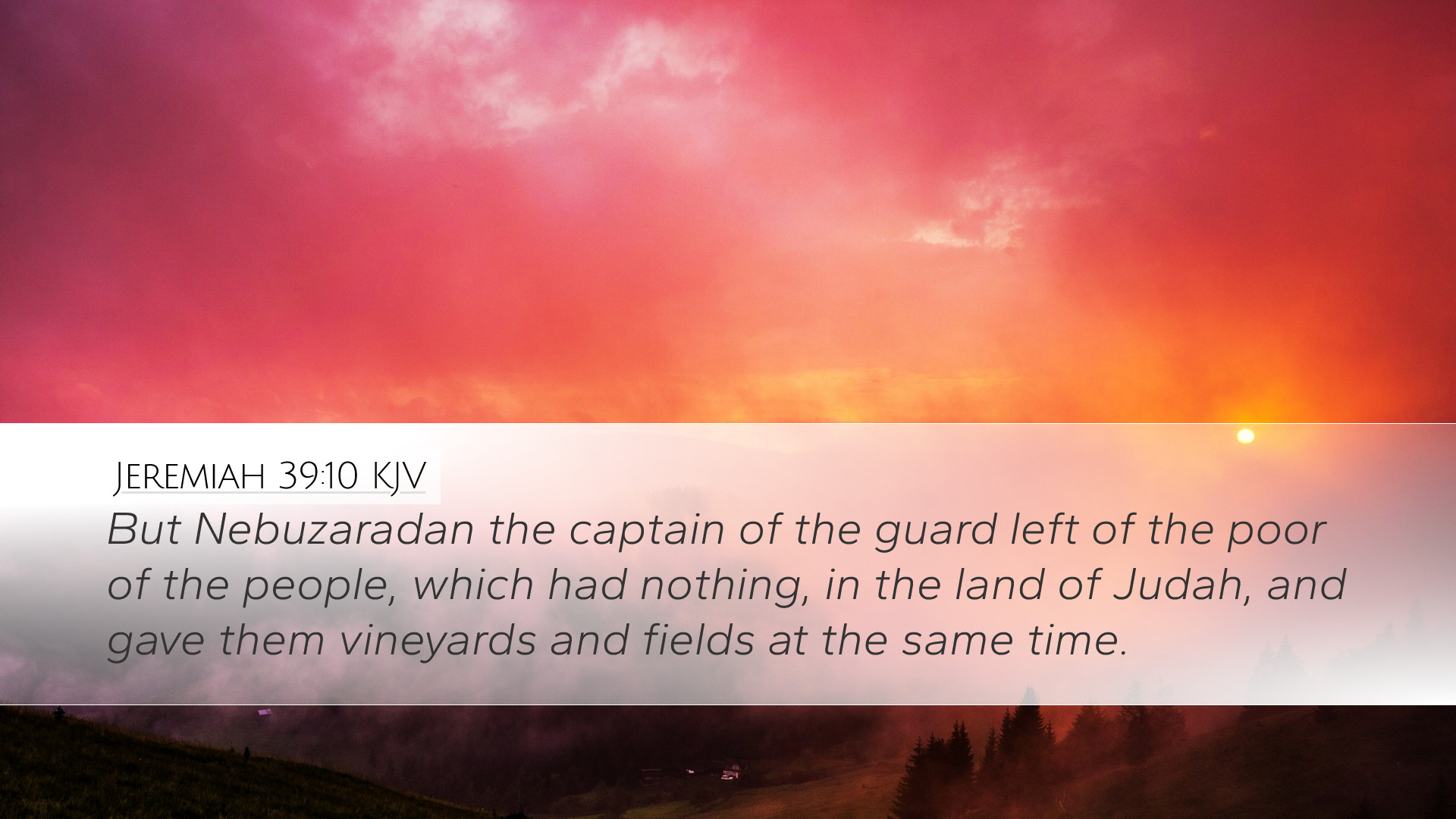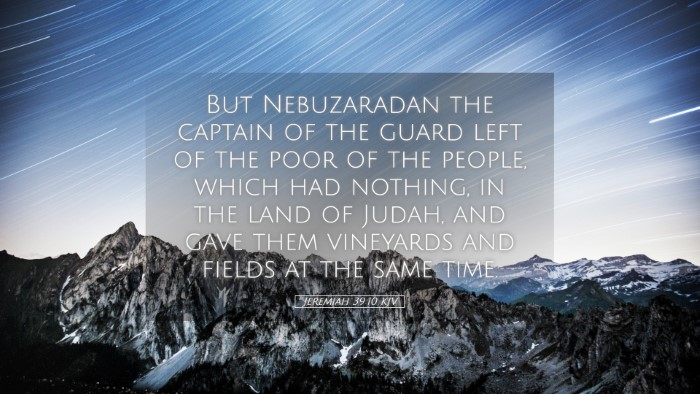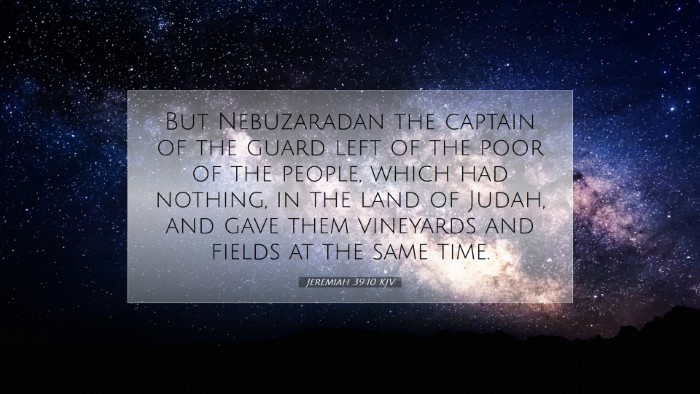Commentary on Jeremiah 39:10
Jeremiah 39:10 states: "But Nebuzaradan, the captain of the guard, left of the poor of the people, which had nothing, in the land of Judah, and gave them vineyards and fields at the same time."
Overview
This passage from Jeremiah marks a significant moment in the history of Israel, reflecting the aftermath of Jerusalem’s fall to the Babylonians. In this commentary, we will explore the implications of God's judgment, the mercy extended to the poor, and the thematic elements that emerge from the context.
Historical Context
The backdrop of Jeremiah 39 is the siege and destruction of Jerusalem, culminating in 586 B.C. The city, once a thriving hub of worship and governance, falls victim to the might of Nebuchadnezzar's army. Jeremiah paints a vivid imagery of despair, destruction, and the dire predicament of the people.
- Significance of Nebuzaradan: The captain of the guard, Nebuzaradan, represents the Babylonian authority and the execution of divine judgment foretold by Jeremiah.
- Impact on the Population: The Israelites faced dire consequences, especially the elite and the defenders of the city, whereas the 'poor of the people' often found themselves neglected amidst the chaos.
Theological Insights
In examining the verse through theological lenses, we uncover profound insights about God's sovereign hand even amid calamity.
- Divine Judgment: This verse is a clear depiction of the consequences of Israel’s unfaithfulness. As commentators like Albert Barnes elucidate, the liberation of the poor signifies God’s judgment in action but also points to a remnant that persists in faith.
- God’s Mercy: Matthew Henry emphasizes that God, in the midst of judgment, shows mercy. The decision to leave the poor to remain in Judah demonstrates that God has not completely abandoned His people.
- The Remnant Theme: The notion of preserving a remnant is a recurring theme in scripture, illustrating God’s faithfulness through adversity.
Practical Applications
The implications of this text extend beyond historical analysis, offering practical wisdom for contemporary believers.
- Faithfulness in Trials: Like the poor left behind, believers may find themselves in precarious situations, yet God's provision and care of His people reassure that His plans are for good, not for evil (Jeremiah 29:11).
- Compassion for the Marginalized: Citing Adam Clarke's commentary, we are reminded to care for the needy and marginalized in our communities, akin to the actions of Nebuzaradan in providing for the poor.
- Hope in Despair: Amidst chaos, scripture implores us to look for signs of God’s mercy and providence, urging us to remain steadfast in our faith.
Conclusion
Jeremiah 39:10 encapsulates a moment heavy with judgment yet illuminated by mercy. Through historical context, theological insights, and practical applications, we learn that even in our darkest times, God remains sovereign, and His heart extends towards the poor and marginalized.
As we reflect on this verse, let us draw near to the lessons it imparts—remaining faithful amidst trials and ever mindful of our calling to serve those in need.


